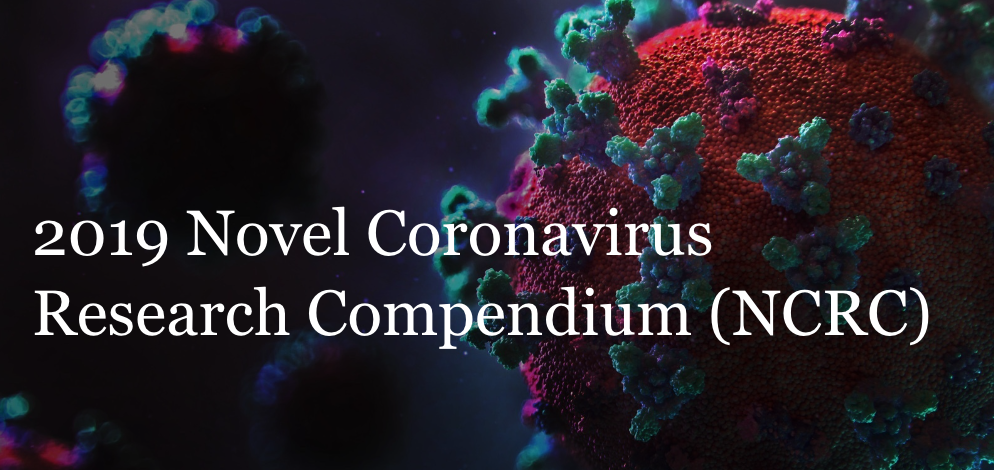Anti-SARS-CoV-2 IgA and IgG in human milk after vaccination is dependent on vaccine type and previous SARS-CoV-2 exposure: a longitudinal study
This article has been Reviewed by the following groups
Discuss this preprint
Start a discussion What are Sciety discussions?Listed in
- Evaluated articles (ScreenIT)
- Evaluated articles (NCRC)
- High interest articles (NCRC)
Abstract
Background
Breast milk is a vehicle to transfer protective antibodies from the lactating mother to the neonate. After SARS-CoV-2 infection, virus-specific IgA and IgG have been identified in breast milk, however, there are limited data on the impact of different COVID-19 vaccine types in lactating women. This study is aimed to evaluate the time course of induction of SARS-CoV-2-specific IgA and IgG in breast milk after vaccination.
Methods
In this prospective observational study in Spain, 86 lactating women from priority groups receiving the vaccination against SARS-CoV-2 were included. Breast milk samples were collected longitudinally at seven or eight-time points (depending on vaccine type). A group with confirmed SARS-CoV-2 infection ( n =19) and a group of women from pre-pandemic time ( n =20) were included for comparison.
Results
Eighty-six vaccinated lactating women [mean age, 34.6 ± 3.7 years] of whom 96% were Caucasian and 92% were healthcare workers. A total number of 582 milk samples were included, and vaccine distribution was BioNTech/Pfizer (BNT162b2, n =34), Moderna (mRNA-1273, n =20), and AstraZeneca (ChAdOx1 nCoV-19, n =32). For each vaccine, 7 and 8 longitudinal time points were collected from baseline up to 30 days after the second dose for mRNA vaccines and adenovirus-vectored vaccines, respectively. A strong reactivity was observed for IgG and IgA after vaccination mainly after the 2 nd dose. The presence and persistence of specific SARS-CoV-2 antibodies in breast milk were dependent on the vaccine type, with higher IgG and IgA levels in mRNA-based vaccines when compared to AstraZeneca, and on previous virus exposure. High intra- and inter-variability were observed, being relevant for IgA antibodies. In milk from vaccinated women, anti-SARS-CoV-2 IgG was significantly higher while IgA levels were lower than in milk from COVID-19-infected women. Women with previous COVID-19 increased their IgG antibodies levels after the first dose to a similar level observed in vaccinated women after the second dose.
Conclusions
COVID-19 vaccination induced anti-SARS-CoV-2 IgA and IgG in breast milk with higher levels after the 2 nd dose. Levels of anti-SARS-CoV-2 IgA and IgG are dependent on the vaccine type. Further studies are warranted to demonstrate the protective antibody effect against COVID-19 in infants from vaccinated and infected mothers.
Trial registration
NCT04751734 (date of registration is on February 12, 2021)
Article activity feed
-
-

Our take
This observational study of 75 lactating women in Spain, available as a preprint and thus not yet peer-reviewed, showed that vaccine type (Pfizer, Moderna or Astra-Zeneca) and previous SARS-CoV-2 infection both affect levels of SARS-CoV-2 specific IgG and IgA antibodies present in breastmilk. These results indicate the need for further study to see if these breastmilk antibodies could provide protection against COVID-19 to infants of vaccinated mothers via breastfeeding.
Study design
prospective-cohort
Study population and setting
This study was a prospective, observational study conducted in Spain from January through April of 2021. 75 lactating women who were in high-priority groups for vaccination participated. 19 of these women were confirmed to have had past SARS-CoV-2 infection. …
Our take
This observational study of 75 lactating women in Spain, available as a preprint and thus not yet peer-reviewed, showed that vaccine type (Pfizer, Moderna or Astra-Zeneca) and previous SARS-CoV-2 infection both affect levels of SARS-CoV-2 specific IgG and IgA antibodies present in breastmilk. These results indicate the need for further study to see if these breastmilk antibodies could provide protection against COVID-19 to infants of vaccinated mothers via breastfeeding.
Study design
prospective-cohort
Study population and setting
This study was a prospective, observational study conducted in Spain from January through April of 2021. 75 lactating women who were in high-priority groups for vaccination participated. 19 of these women were confirmed to have had past SARS-CoV-2 infection. Participants had either received the Pfizer mRNA vaccine, the Moderna mRNA vaccine, or the Oxford/AstraZeneca adenoviral-vectored vaccine. Breastmilk samples were collected at seven time points: pre-vaccination (0 weeks), 1 week, 2 weeks, and 3 weeks following the first dose. For the two mRNA vaccines, samples were also collected 1 week, 2 weeks, and 3-4 weeks following the second dose. 13 pre-pandemic breastmilk samples were also included in the analysis. SARS-CoV-2 S protein RBD specific IgG and IgA antibodies were measured in the breastmilk samples.
Summary of main findings
The authors of this study found that SARS-CoV-2 specific antibodies in the breast milk were dependent on vaccine type and previous exposure to the virus. There was a significant increase in IgG and IgA antibodies after vaccination, especially after the second dose of the mRNA vaccines studied here. Levels were higher compared to the pre-pandemic breastmilk samples. While IgG levels increased even further after a second dose of vaccine, IgA levels did not increase further. No major differences were found between the two mRNA vaccines. IgG levels increased in the breastmilk of women who had previously been infected increased after the first dose of vaccine in a similar manner to the way they would increase after a second dose of vaccine in an uninfected person. IgG levels were higher in the milk of vaccinated women compared to naturally infected women, while the opposite trend was found for IgA. Finally, anti-SARS-CoV-2 IgG antibodies persisted in the breastmilk by the final time point of the study, while IgA antibody levels decreased by 3-4 weeks after the second dose, with only 50-60% of samples testing positive for it by the final time point.
Study strengths
Since lactating women were not included in vaccine trials, limited data is available about the vaccine in this group. Therefore, this study provides some important and novel information. The study is the first of its kind to investigate the effect of multiple different vaccines on antibody levels in breastmilk. Additionally, this study compared samples from vaccinated lactating women to pre-pandemic breastmilk samples, as well as samples from women naturally infected with SARS-CoV-2.
Limitations
The population included in this study was not very diverse, with over 95% of participants being white. The average age of participants was 34.9 +/- 3.9 years, and therefore few very young or old mothers were included, and age may affect the results. The study was of short duration, and longer-term samples will need to be collected in order to better study the persistence of the antibody response. Importantly, no data was collected after the second dose of the Oxford/AstraZeneca adenoviral-vectored vaccine. Therefore, comparisons cannot be made regarding the second dose of all three vaccines included in this study. Finally, no functional assays were performed in order to measure neutralizing activity of the antibodies found in the breastmilk samples.
Value added
Investigating the effect of COVID-19 vaccination type and previous SARS-CoV-2 infection status on the duration and levels of SARS-CoV-2 specific antibodies in breastmilk.
-

SciScore for 10.1101/2021.05.20.21257512: (What is this?)
Please note, not all rigor criteria are appropriate for all manuscripts.
Table 1: Rigor
Ethics Consent: Participants received information and written consent was obtained before enrollment.
IRB: All procedures were in accordance with the ethical standards approved by the Ethical Committee of the Hospital Clínico Universitario (Ref. 2020/133), the Institut de Recerca Sant Joan de Déu (Ref. PIC-94-21), and CSIC (Ref. 061/2021).Sex as a biological variable Study population and design: This is a prospective observational, longitudinal, and multicenter study in lactating women receiving vaccination against SARS-CoV-2 infection in Spain (ClinicalTrials.gov Identifier: NCT04751734). Randomization not detected. Blinding not detected. Power Analysis not detected. Cell Line Authentication Authentication… SciScore for 10.1101/2021.05.20.21257512: (What is this?)
Please note, not all rigor criteria are appropriate for all manuscripts.
Table 1: Rigor
Ethics Consent: Participants received information and written consent was obtained before enrollment.
IRB: All procedures were in accordance with the ethical standards approved by the Ethical Committee of the Hospital Clínico Universitario (Ref. 2020/133), the Institut de Recerca Sant Joan de Déu (Ref. PIC-94-21), and CSIC (Ref. 061/2021).Sex as a biological variable Study population and design: This is a prospective observational, longitudinal, and multicenter study in lactating women receiving vaccination against SARS-CoV-2 infection in Spain (ClinicalTrials.gov Identifier: NCT04751734). Randomization not detected. Blinding not detected. Power Analysis not detected. Cell Line Authentication Authentication: Women were excluded if cessation of breastfeeding and/or vaccine side-effects required specific treatment and/or hospitalization. Table 2: Resources
Antibodies Sentences Resources Detection of specific SARS-CoV-2-antibodies in breast milk: Antibodies against the receptor-binding domain (RBD) SARS-CoV-2 S protein were determined as previously described14. 1:4 diluted samples were incubated for 2 h in 1 % (w/v) milk powder and SARS-Cov-2 antibodies were detected using anti-human IgA (α-chain-specific) HRP antibody (Thermo-Fisher Scientific; A18781; 1:6.000) and anti-human IgG (Fc specific) HRP antibody (Sigma-Aldrich; A0170; 1:4.000). SARS-Cov-2suggested: Noneanti-human IgAsuggested: (Thermo Fisher Scientific Cat# A18781, RRID:AB_2535558)α-chain-specific) HRPsuggested: Noneanti-human IgGsuggested: (Sigma-Aldrich Cat# A0170, RRID:AB_257868)Software and Algorithms Sentences Resources Participants received either two doses of mRNA vaccines (BNT162b2 mRNA, BioNTech/Pfizer and mRNA-1273, Moderna) or just one dose of adenovirus-vectored vaccine (ChAdOx1 nCoV-19, Oxford/AstraZeneca). BioNTech/Pfizersuggested: NoneDetection of specific SARS-CoV-2-antibodies in breast milk: Antibodies against the receptor-binding domain (RBD) SARS-CoV-2 S protein were determined as previously described14. 1:4 diluted samples were incubated for 2 h in 1 % (w/v) milk powder and SARS-Cov-2 antibodies were detected using anti-human IgA (α-chain-specific) HRP antibody (Thermo-Fisher Scientific; A18781; 1:6.000) and anti-human IgG (Fc specific) HRP antibody (Sigma-Aldrich; A0170; 1:4.000). Thermo-Fisher Scientificsuggested: NoneStatistical analysis: GraphPad Prism 8.4.3 was used for the statistical analysis. GraphPad Prismsuggested: (GraphPad Prism, RRID:SCR_002798)Results from OddPub: We did not detect open data. We also did not detect open code. Researchers are encouraged to share open data when possible (see Nature blog).
Results from LimitationRecognizer: An explicit section about the limitations of the techniques employed in this study was not found. We encourage authors to address study limitations.Results from TrialIdentifier: We found the following clinical trial numbers in your paper:
Identifier Status Title NCT04751734 Enrolling by invitation Impact of Maternal COVID-19 Vaccines on Breast Milk NCT04768244 Recruiting Impact of Maternal COVID-19 Disease on Breast Milk and Infan… NCT03552939 Completed The Impact of Maternal Microbes on Infant Health Programming Results from Barzooka: We did not find any issues relating to the usage of bar graphs.
Results from JetFighter: We did not find any issues relating to colormaps.
Results from rtransparent:- Thank you for including a conflict of interest statement. Authors are encouraged to include this statement when submitting to a journal.
- Thank you for including a funding statement. Authors are encouraged to include this statement when submitting to a journal.
- No protocol registration statement was detected.
Results from scite Reference Check: We found no unreliable references.
-


